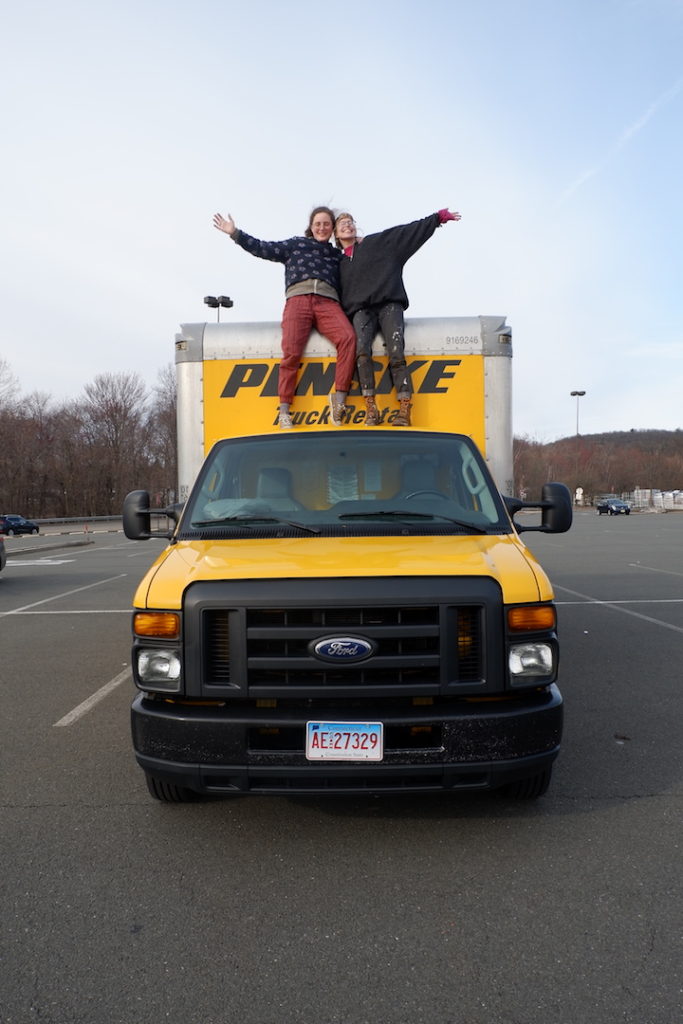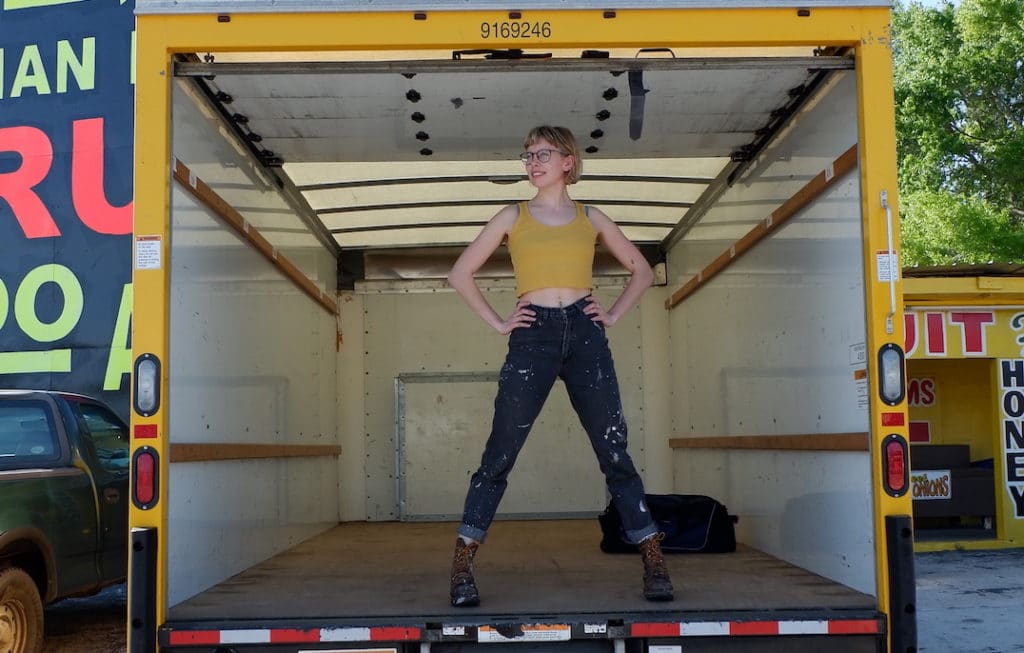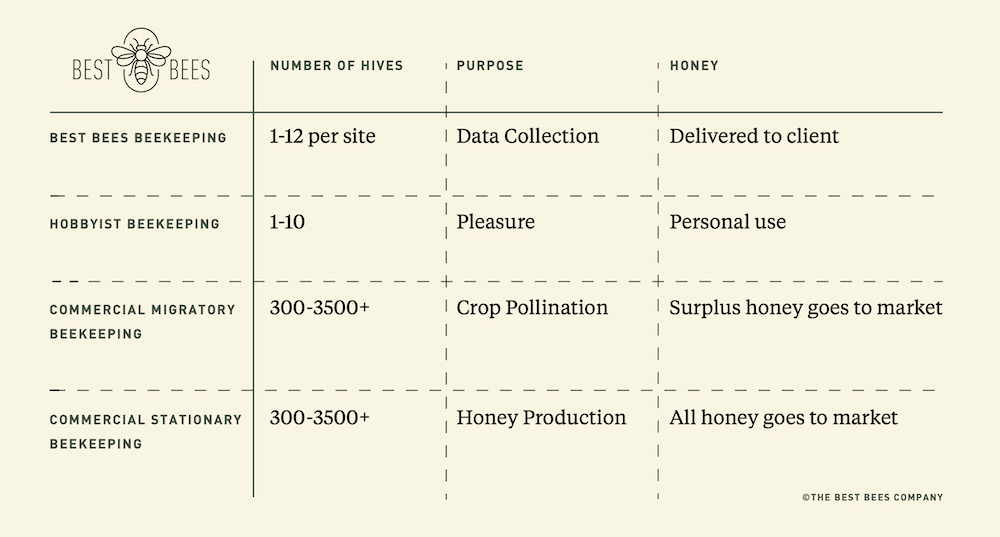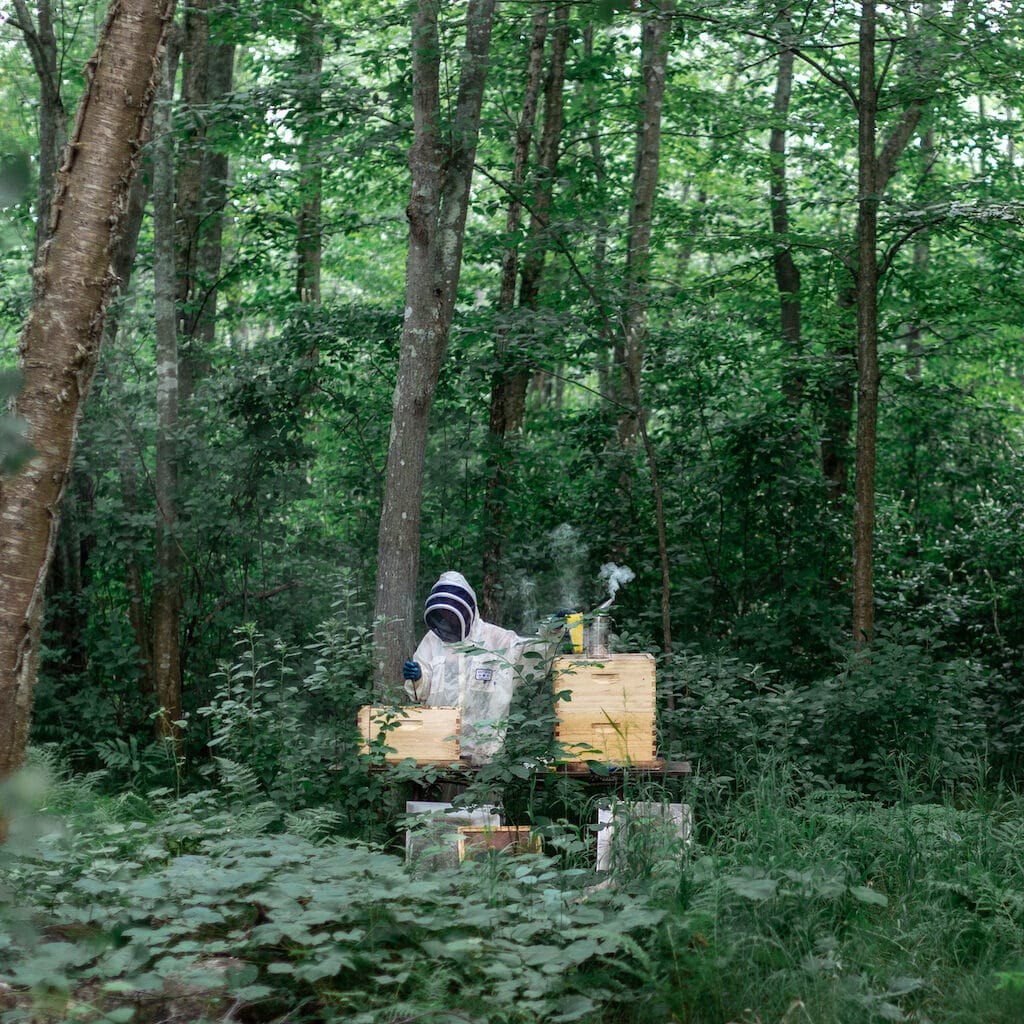There are so many reasons why I love working for The Best Bees Company. I’m employed amongst like-minded people whom I adore. I have honey at my disposal as if I lived in a utopian fairy forest. There’s a petite kitten who jaunts around gleefully and sometimes even sends out my emails. But perhaps the biggest perk of the job is the annual trip from Boston to Georgia to receive the bees – otherwise known as The Bee Pick Up.
As you may or may not know, bees are dying. For average citizens, this is just another bit of pessimistic news – perhaps the cherry on top – of the environmental crisis sundae that spills across our media and our minds. For beekeepers, it’s heartache. For farmers, it’s lack of income and wellbeing. For the folks at The Best Bees Company, it’s all the above.
So, let’s save them right!? We’re trying. Overwintered colonies, or honeybees that survive the winter, are harder to come by. Some US states are losing as many as 73.3% of their honeybee colonies annually. Because of this, it is our duty to re-up the bee population. We do so by flying down to Georgia, filling a box truck up with 4 million bees, and driving up the coast to give them new homes.
I’ve had the honor of completing this mission four times with my partner-in-crime, long time #bestbeesbestie, Sophie Chaney. She is our Head Beekeeper and has taught me so much about these fascinating creatures. Together we push forth with two goals in mind— to drive the bees up swiftly and safely—AND to successfully spread peanut butter on bread with a baby carrot.
Our journeys have had many quirks, like when we decided to kill time at a pawn shop and befriended a flamboyant shop owner with 4 poodles. Or the time we “accidentally” fell into a 12-hour true crime podcast about the Charles Manson murders. (Reaching our destination that evening at 3AM was extra creepy). These experiences make the annual Bee Pick Up truly unique and unforgettable.
Before I get too gooey with sentiment, let me give you some insight into the logistics that make for a successful Bee Pick Up.
Step 1: Bon Voyage.
Leave Boston at sunrise and arrive in Jacksonville FL, bright-eyed, bushy-tailed, and slightly disoriented.
Step 2: Getting Started.
Take a taxi from the airport to a Pensky lot where you will fill out some paperwork and interact with a vending machine that hasn’t been refilled since 2006.
Step 3: Trusty Steed.
Receive your keys and meet your trusty steed – a 15 ft bright yellow box truck with two bucket seats, and a heart of gold.
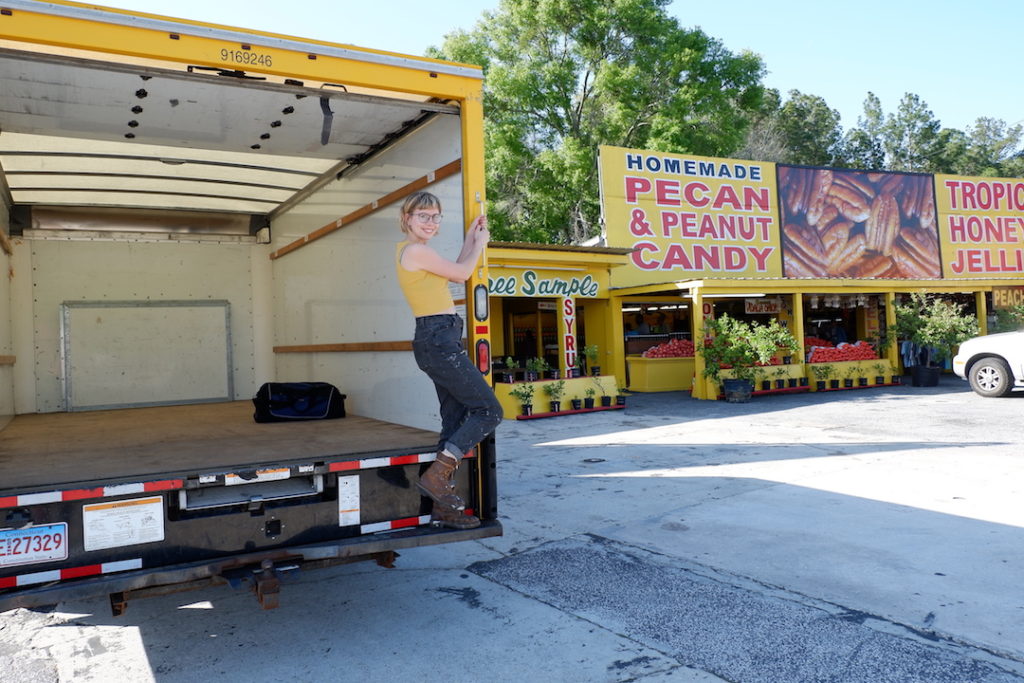
Step 4: The Beekeeper Went Down to Georgia.
Head north to your first destination: Moultrie, Georgia. Your GPS will take you to a generic hotel where you will park your steed and set up a one-of-a-kind ventilation system – a long silver tube, like that of a robot costume, stretching across the back of the truck bed and out into the open air.
This system is essential, as the colonies packed in the middle of the truck bed, aka the “death zone,” would overheat without airflow. (Ventilation is just one of the tricks of the trade we’ve built in to our process for a successful Bee Pick Up.)
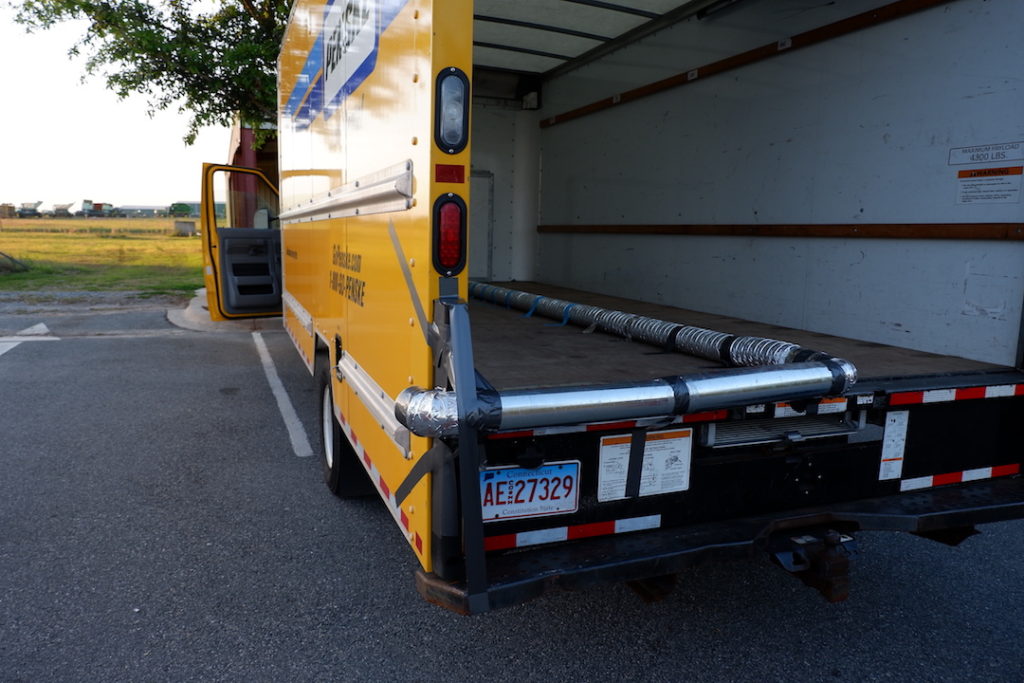
Step 5: Apiary Action.
Wake up with a Christmas-morning-giddiness and head to Rossman Apiary, a family-owned bee farm and our primary supplier of honeybee colonies. It is here that Fred Rossman and his team will fill the back of the Pensky truck with 400 bee packages—screened starter kits each consisting of 10,000 bees and 1 queen. They’ll stack, strap, and staple the packages snuggly into the truck and send you on your merry way.
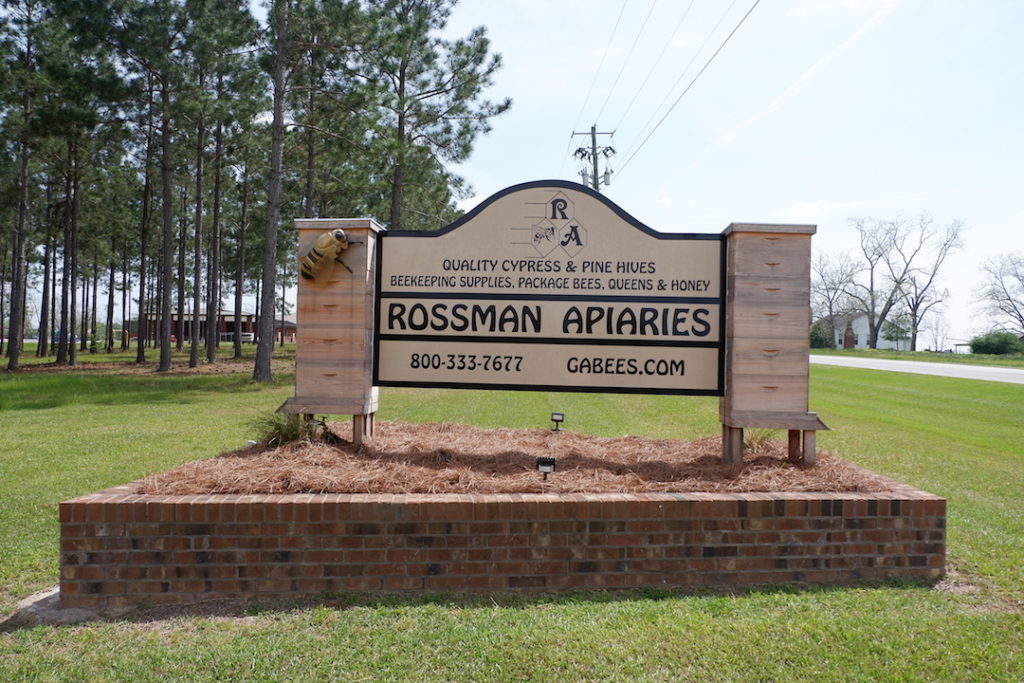
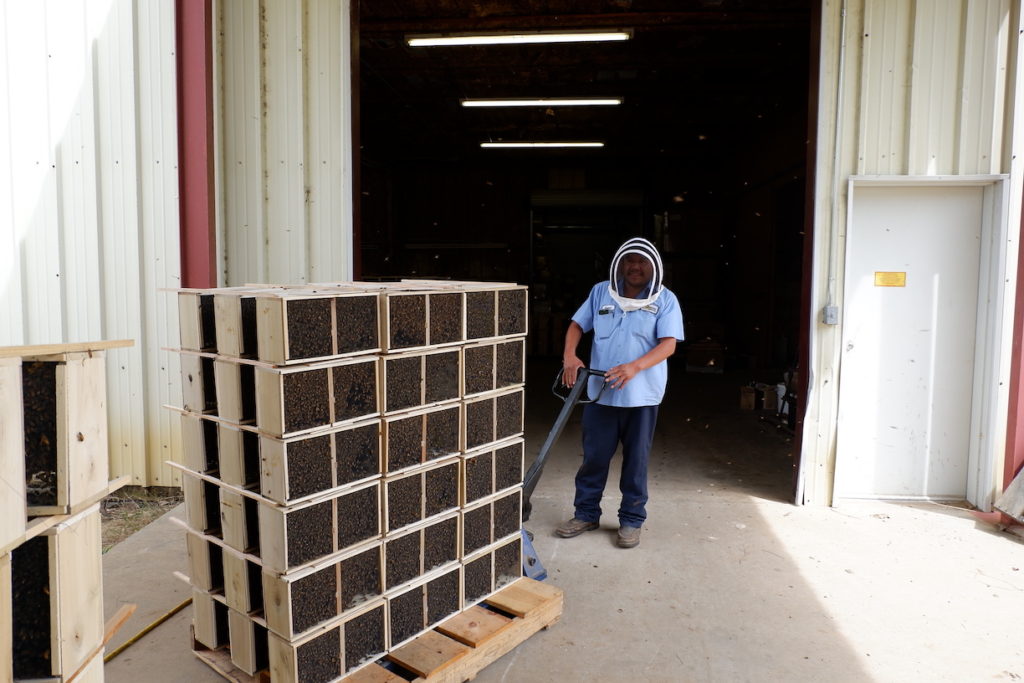
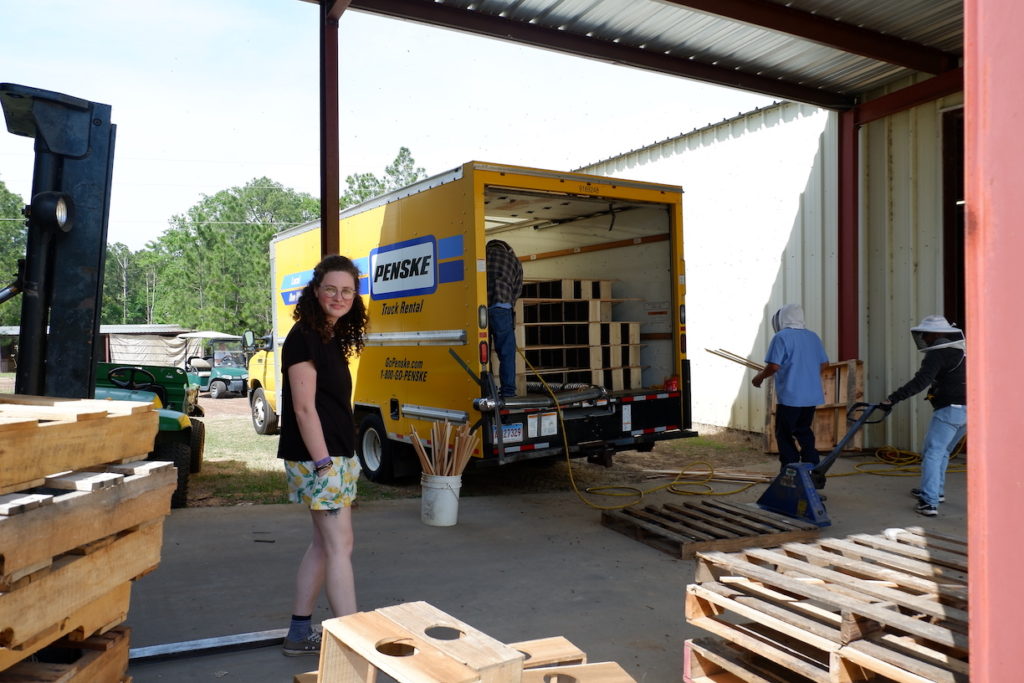
Step 6: Southern Travelers.
Feeling like a true hero, you and your bees begin your quest to the homeland. The first leg of the journey is a 10-hour drive through the South Atlantic states and up the coast. The bucolic stretches of land, towns with populations of 100 or less, and billboards that scream, “PEACHES SWEET NUTS AND GOD LOVES BABIES!” is a shocking landscape for a New Englander. You must be sure to make good time with limited stops as a motionless van = no air flow = dead bees.
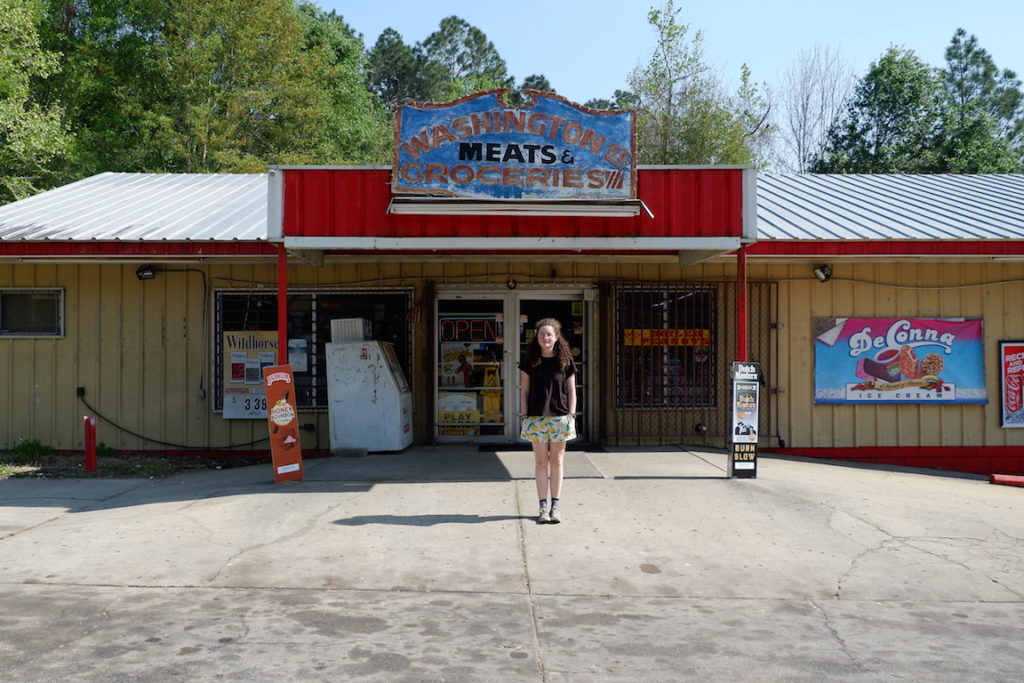
Step 7: The Halfway Point.
Arrive at your halfway point, typically somewhere in Virginia, sleep quickly, and get ready for Day 2. By this point the air is cool enough to rest easy, knowing that the bees won’t overheat and suffer through the night.
Step 8: Northward Bound.
Push north. You will notice the air getting chillier and the roads becoming narrower. The search for ear-tickling content continues as you trudge through the mundanity of route 95, dream of the GW bridge and avoid thoughts of a dramatic, bee-filled collision.
Step 9: Bees in the Big Apple.
Arrive in New York 6 hours later. You will excitedly pass off a portion of packages to your New York-based teammates. You’ll fill their van, stretch, share a bagel, and head off to the final leg of the trip.
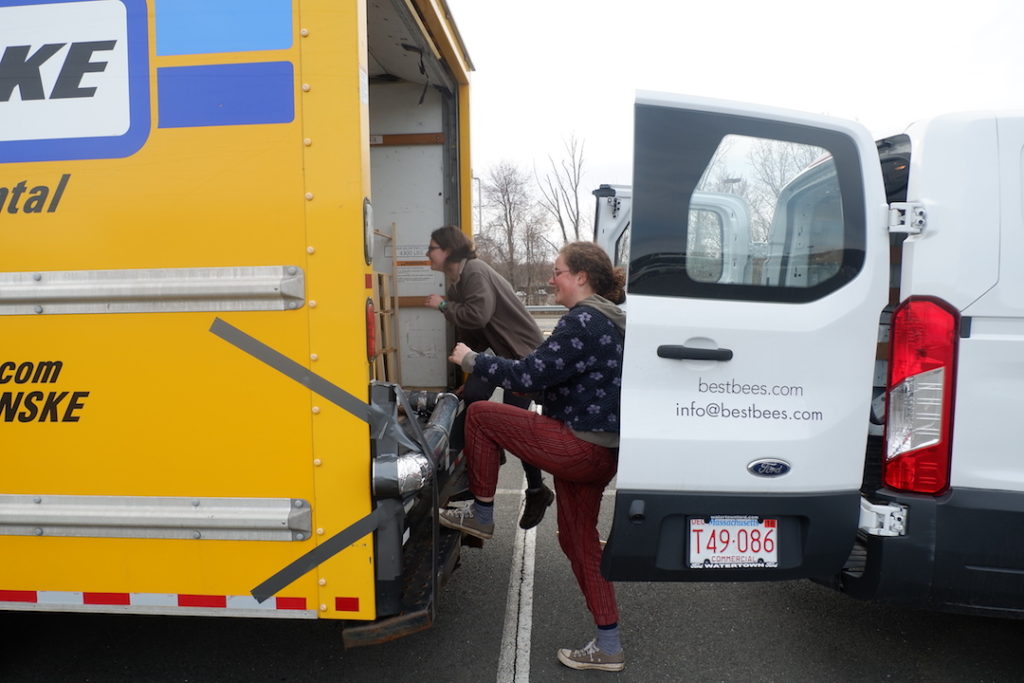
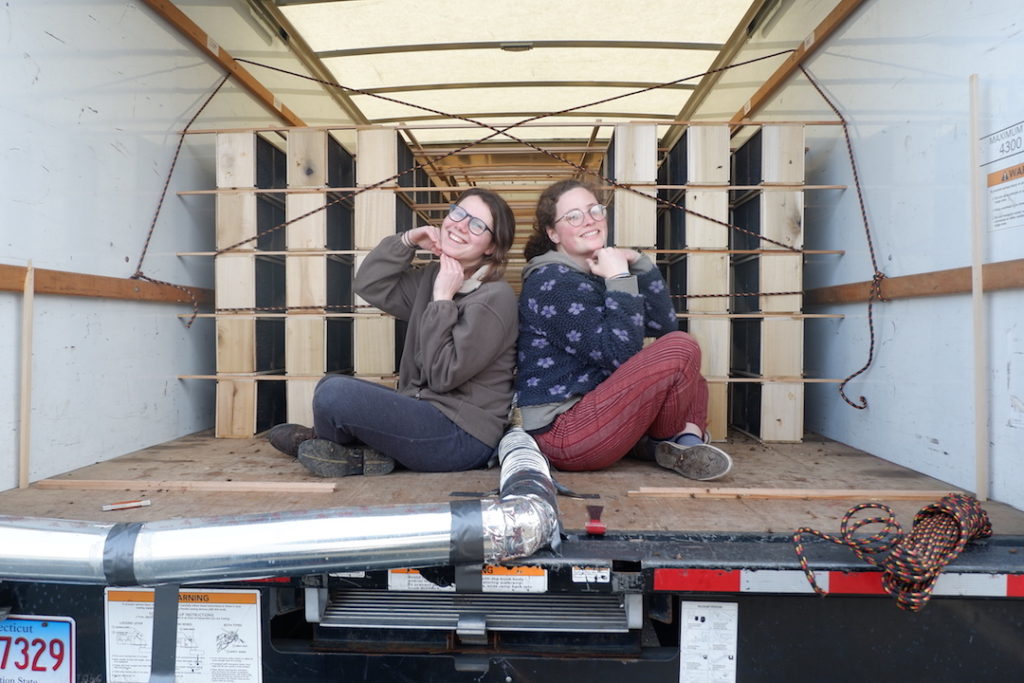
Step 10: The Arrival.
Night falls as you head into Boston. Your heart swells with accomplishment and pride when you pull off that familiar exit leading you right to The Best Bees Company headquarters. The team that you adore meets you with open arms and a bottle of bubbly. Together you move the bees from the truck and onto the floor of the operations deck. Celebration ensues as the completion of this mission signals the beginning of another—to give these bees a proper home, provide them with the best possible care, and to improve the overall health of this vital species that we love.
